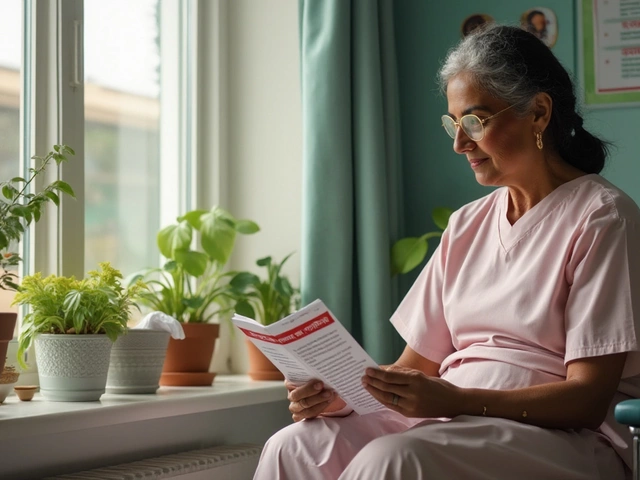Weight Loss Clinic: What to Expect and How It Can Help You Lose Weight Fast
Thinking about joining a weight loss clinic? You’re not alone. Many people turn to clinics when diet‑and‑exercise alone isn’t enough. Below we break down what a clinic offers, who you’ll see, and the most effective tools they use.
Who Should Visit a Weight Loss Clinic?
If you’ve tried counting calories, using apps, or going to the gym and still see no change, a clinic might be the next step. Clinics are especially useful for:
- People with a BMI over 30 who need medical supervision.
- Those who want prescription‑strength weight loss pills.
- Anyone with health issues like diabetes or hypertension that make self‑managed weight loss risky.
Most clinics start with a thorough health check‑up. They’ll look at blood sugar, cholesterol, thyroid function, and any medications you’re already taking. This baseline helps the team design a safe plan.
What Kind of Treatments Do Clinics Offer?
Typical clinics combine three core components: medical evaluation, nutrition guidance, and lifestyle coaching. Here’s a quick look:
- Prescription weight loss pills: Doctors like endocrinologists or bariatric specialists can prescribe medications such as Orlistat, Phentermine, or newer GLP‑1 agonists. These drugs work by reducing appetite or blocking fat absorption.
- Structured diet plans: Nutritionists tailor meals to your preferences—low‑carb, Mediterranean, or portion‑controlled plates—while ensuring you get enough protein and vitamins.
- Exercise programs: Physical therapists design safe workouts based on your fitness level. Even a 20‑minute daily walk can boost results.
- Behavioral coaching: Psychologists or certified coaches teach habit‑forming techniques, like keeping a food journal or using mindfulness to curb cravings.
Some clinics also offer advanced options like non‑invasive body‑contouring or bariatric surgery referrals for severe cases.
One of the most popular questions is “Which doctor can prescribe weight loss pills?” The answer is usually a qualified physician—often an endocrinologist, bariatric surgeon, or a primary care doctor with special training in obesity medicine. Ask the clinic about the credentials of the prescribing doctor before you start.
Another hot topic is speed. While you’ll hear promises of dropping 20 pounds fast, sustainable loss is about 1‑2 pounds a week. Rapid methods can cause rebound weight gain or health issues. Clinics that focus on safe, gradual loss tend to have better long‑term success rates.
Before you sign up, check these red flags:
- No clear medical supervision or no licensed doctor on staff.
- Guarantees of “miracle” results without lifestyle changes.
- Hidden fees for basic lab tests or follow‑up visits.
When you find a reputable clinic, you’ll likely start with a complimentary health check‑up. This session outlines what tests matter for your age and health, and it helps you avoid hidden costs later.
Bottom line: A weight loss clinic can give you the medical support, structured plan, and accountability you need to finally see results. Choose a clinic with qualified doctors, transparent pricing, and a balanced approach to diet, exercise, and medication. With the right partner, shedding those extra pounds becomes a realistic, healthy journey.





